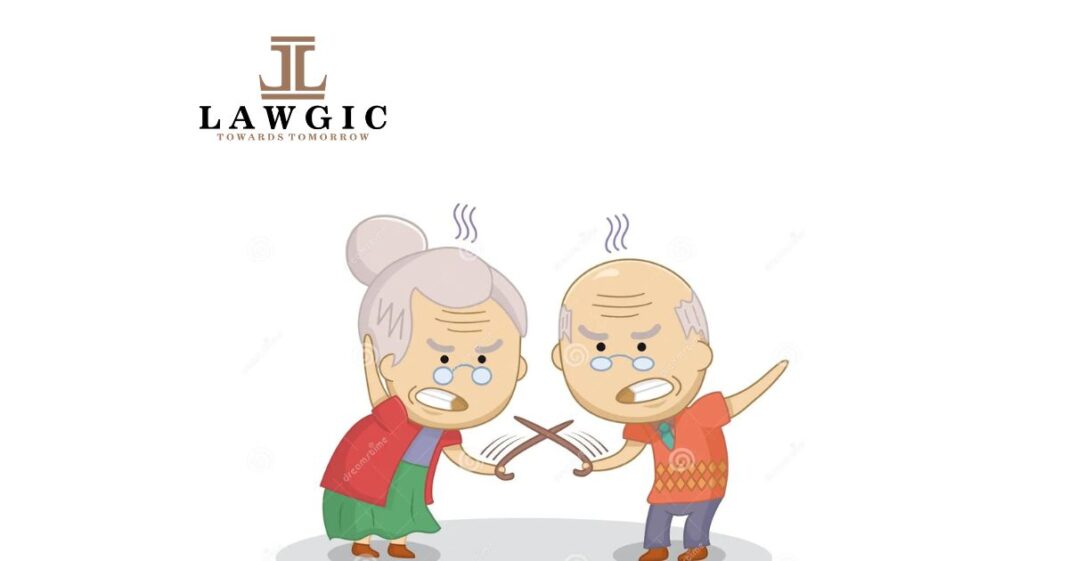After a span of twenty-seven years since a former Armed Forces officer petitioned for divorce from his wife, the Supreme Court has dismissed the case. The Court has reminded the couple, who are now 89 and 82 years old, that marriage is still regarded as a sanctified, spiritual, and priceless emotional bond between a husband and wife in Indian society.
In March 1963, the couple exchanged vows and eventually welcomed two daughters and a son.
However, problems arose after the husband, an officer, was transferred from Amritsar to Madras in January 1984. His wife, a teacher, chose not to accompany him, instead remaining with her in-laws and eventually moving in with her son. Following unsuccessful attempts to resolve their differences, the husband filed a petition for divorce on the basis of cruelty and desertion.
He asserted that during his hospitalization due to a heart attack, his wife did not visit him even once and subsequently filed a complaint against him to his superiors, thereby tarnishing his reputation. According to him, such actions are indicative of cruelty.
According to the husband, they have been living separately since March 1997 after he filed for a divorce petition in a District Court, citing an irretrievable breakdown of the marriage. The husband has requested that the Court grant a decree of divorce under Article 142 of the Constitution.
The wife, on the other hand, has expressed her reluctance to be labeled a “divorcee” due to her advanced age. Despite this, she has made every effort to maintain the sanctity of their relationship and is willing to continue providing care for her husband with the assistance of their son.
In February 2000, the Chandigarh District Court granted the couple a divorce. However, following an appeal by the wife, a single-judge bench of the Punjab and Haryana High Court overturned the decision in December 2000. Nearly a decade later, in February 2009, a division bench of the High Court upheld the single-judge bench’s verdict. As a result, the husband sought relief from the Supreme Court.
The division bench of Justices Aniruddha Bose and Bela M Trivedi of Supreme Court affirmed the High Court’s decision regarding the allegations of cruelty and desertion, stating that “the appellant (husband) failed to provide sufficient evidence to substantiate the claims that the respondent had subjected him to cruelty or deserted him as legally defined.”
The bench said “There is no dispute that the parties are staying separate since last many years and all the efforts to bring them together have failed. Under the circumstances, one may presume that the marriage is emotionally dead and beyond salvation and that there is an irretrievable breakdown of marriage between the parties.”
“However, the question is, should the irretrievable breakdown of marriage necessarily result in a decree of divorce to be granted under Article 142 of the Constitution of India?” it said.
“However, in our opinion, one should not be oblivious to the fact that the institution of marriage occupies an important place and plays an important role in society. Despite the increasing trend of filing divorce proceedings in the courts of law, the institution of marriage is still considered to be a pious, spiritual, and invaluable emotional life-net between the husband and the wife in Indian society. It is governed not only by the letters of law but by social norms as well. So many other relationships stem from and thrive on the matrimonial relationships in the society. Therefore, it would not be desirable to accept the formula of ‘irretrievable breakdown of marriage’ as a strait-jacket formula for the grant of relief of divorce under Article 142 of the Constitution of India,” the bench said.
Further the bench added “so far as the facts of the present case are concerned, as stated earlier, the appellant-husband is aged about 89 years and respondent-wife is aged about 82 years. The respondent all throughout her life has maintained the sacred relationship since 1963 and has taken care of her three children all these years, despite the fact that the appellant-husband had exhibited total hostility towards them. The respondent is still ready and willing to take care of her husband and does not wish to leave him alone at this stage of life. She has also expressed her sentiments that she does not want to die with the stigma of being a ‘divorcee’ woman”.


